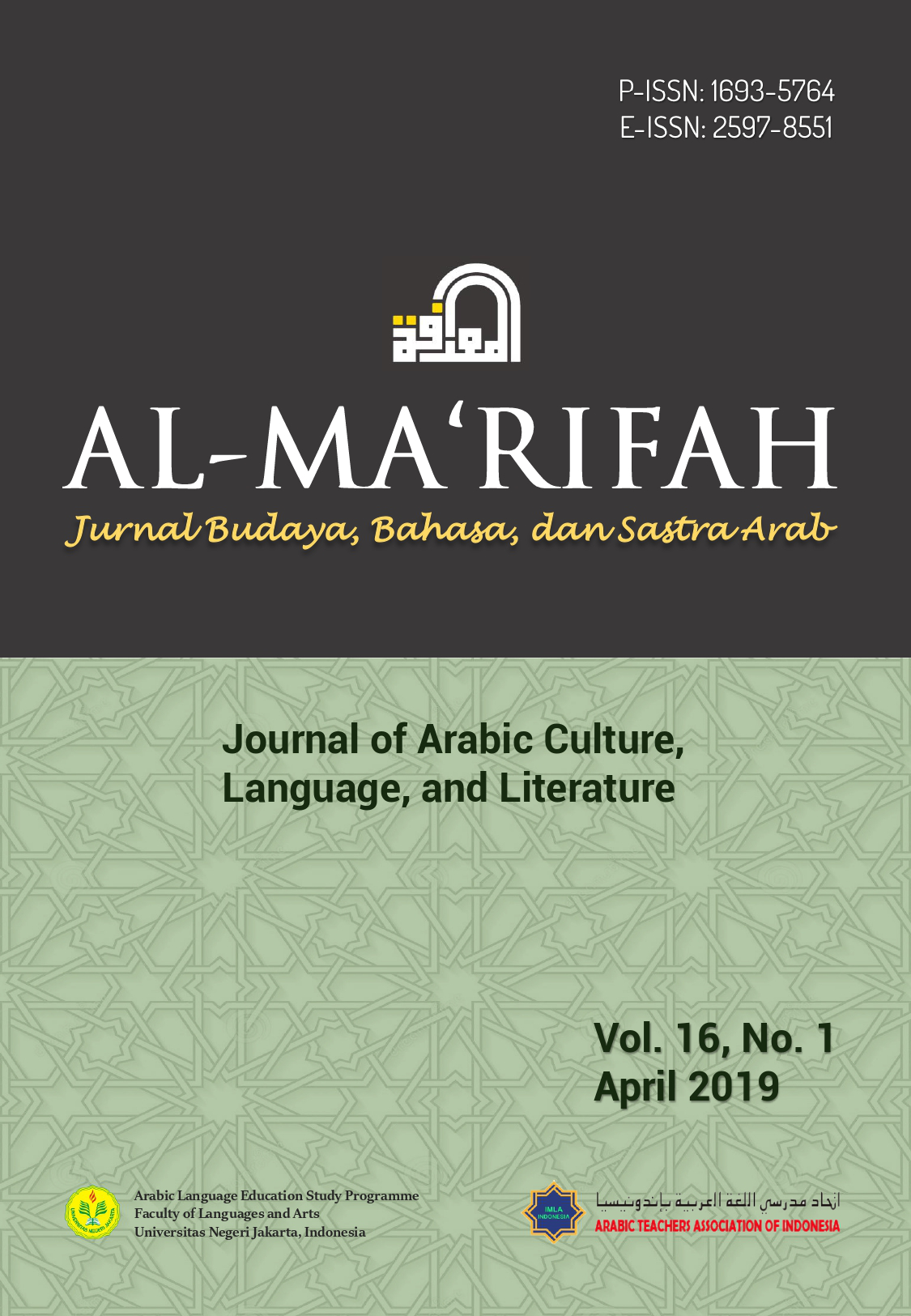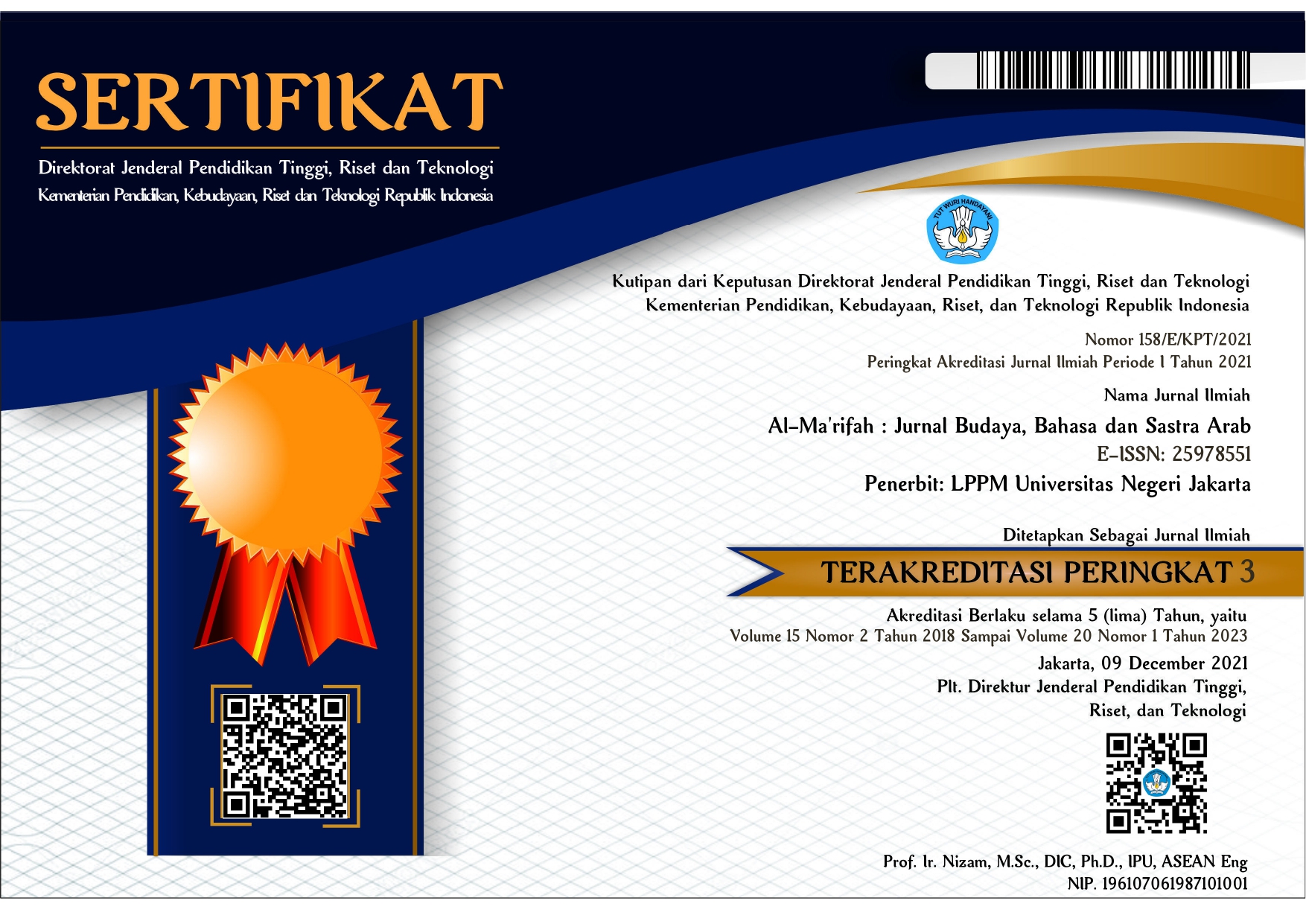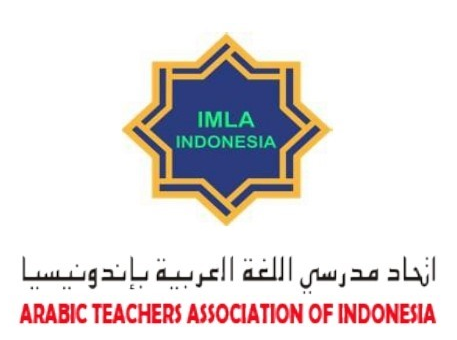Dawr al-Lughah al-‘Arabīyah fī al-‘Alāqāt Bayn al-Maghrib wa-Duwal Ifrīqiyā Janūb al-Ṣaḥrā’
DOI:
https://doi.org/10.21009/almakrifah.16.01.05Keywords:
Sub-Saharan Africa, Arab culture, African literature, Arabic languageAbstract
This paper examines the role of the Arabic language in the relations between Morocco and Sub-Saharan Africa by highlighting issues such as Sufism, which was decisive in the radiance of this language in these areas whose inhabitants were basically Christian or pagan. The Sunnī Sufism imposed on Africans the need to learn and master the Arabic language, which will later be used to write the African history which has long been oral. Moroccans have played a decisive role in this regard by transmitting the literary experience since the conquest of Western Sudan by Aḥmad al-Manṣūr al-Dhahabī in 1591. Therefore, the Arabic language has increased the consolidation of bilateral relations through the cultural exchange during certain historical periods as well as through student envoys and religious disciples. These relations are evident today and developed to reach the economic and political levels by virtue of the Arabic language, the Mālikī doctrine, and the Tijānī Sufism.











